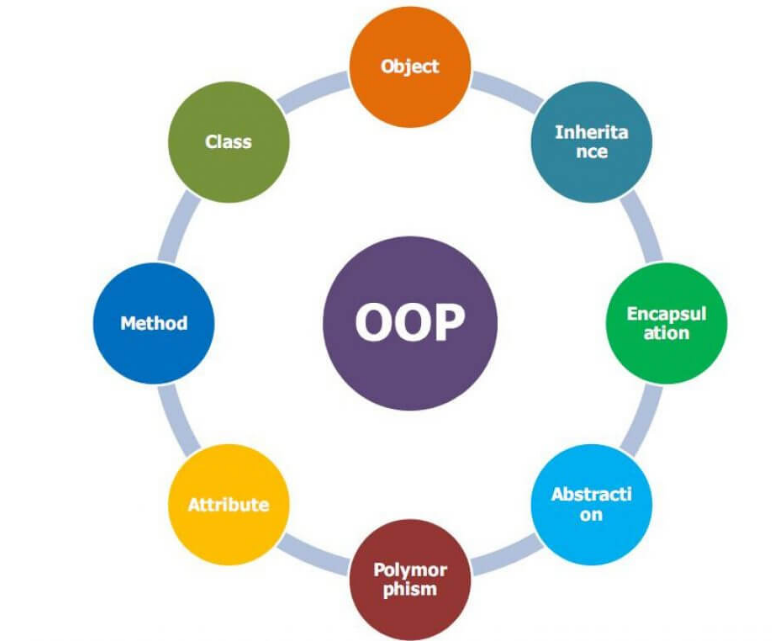
Gooday! Welcome to my blog, I am Ola, I am here today to briefly explain some of the advantages of Object Oriented Programming (OOP). There is nothing wrong with procedural method of write programming languages but most developers prefer OOP as it has a lots of advantages.
Object Oriented Programming OOP is a programming language model for software design that revolves functional object or data instead of logic and functions, it focuses on what developers want to manipulate rather than how they want to manipulate them. This approaches involves Large, complex and actively updated or maintained, an object can be any physical entity like human being. Object Oriented Programming OOP is based on four main principles which include Encapsulations, Abstraction, Inheritance and Polymorphism.
In this post, I will be looking at some of the advantages of Object Oriented Programming OOP, I have some of the advantages highlighted below:
- Easy, efficient and compact coding
It is easy for other programmer to write the code less code, this means with OOP, you do more with less,
- Code written in OOP can be easily extended with the new requirements.
One of the important features of OOP is that, we can keep on adding new feature up request. We can easily change or add new requirement as we wish. This implies that we can easily make changes to existing codes.
- Better control and security of data and member functions.
In OOP, we have the concept of access modify, like public, protected and private, this allow us to secure our codes restrict some part of our codes. This will allow us to restrict access to unauthorized users.
- Errors can be detected and handled efficiently
In OOP, error detection is easier compare to other methods. OOP is efficient in detecting error easily.
- Support for best coding practice
Using OOP, our approach of write codes get improved.
- Easily separates code specification and implementation.
We write codes in OOP using concepts of class, we make different section for our requirements specification and we make different section for our functions, this makes it easy for us to trace our codes and give us better understanding of our codes. This is possible because of OOP.
- Same code can be used in multiple projects that is reusability gets improved.
One of the reason behind using OOP is reusability, instead of wring the same code more than one times, we rather reuse the existing codes in OOP, the less the lines of codes the better the application’s performance.
- Performance gets improved.
when codes are simple and precise, this will increase the performance of our application. OOP is the best when it comes to application performance.
- Easily maintains the code
In Object Oriented Programming OOP, codes are being written in such a way at any point in time, if we are to make any correction, codes in OOP are easy to edit and maintain.
- Provides a better way of representing the code
In Object Oriented Programming, we are representing the codes in form of classes, this makes it easier for programmers to read and understand.
- Programmer can easily understand the code
Code wring in Object Oriented Programming OOP is easy to understand by programmer, codes in OOP are always well organized.
- Provide better conceptualization and modelling using real world object.
We use real world object in Object Oriented Programming, it helps in conceptualizing in the problem, it makes it easier to under the problem in a better way.
Object Oriented Programming is widely adopted in most Technology based organizations, it makes work easy and ease the stress of developer when it comes to a dynamic project.
In this tutorial, we have discussed some of the advantages of Object Oriented Programming, it shows that Object Oriented programming is eradicate DRY, which simply means you should not repeat yourself. Object Oriented Programming is very good in code reusability, it is very efficient, easy to understand and debug, easy to add more functionalities based on client’s specifications. Some programming languages such as PHP allows you to write procedural, but for big project, Object Oriented Programming is highly recommended as its scalable.
Key Principles of OOP:
1. Encapsulation: This principle binds data and methods that manipulate that data into a single unit, called a class or object. Encapsulation helps to hide the implementation details of an object from the outside world.
2. Abstraction: Abstraction is the practice of showing only the necessary details of an object or system while hiding the internal implementation. It helps to reduce complexity and improve modularity.
3. Inheritance: Inheritance allows one class to inherit the properties and behavior of another class. This helps to promote code reuse and facilitate the creation of a hierarchy of related classes.
4. Polymorphism: Polymorphism is the ability of an object to take on multiple forms. This can be achieved through method overloading or method overriding.
5. Composition: Composition is the practice of creating objects from other objects or collections of objects.
Benefits of OOP:
1. Modularity: OOP promotes modularity by breaking down a large program into smaller, independent modules.
2. Reusability: OOP facilitates code reuse by allowing classes to be inherited and modified.
3. Easier Maintenance: OOP makes it easier to maintain and modify software systems by providing a clear and organized structure.
4. Improved Readability: OOP promotes improved readability by using meaningful names for classes, objects, and methods.
Common OOP Concepts:
1. Class: A class is a blueprint or template that defines the properties and behavior of an object.
2. Object: An object is an instance of a class, and has its own set of attributes (data) and methods (functions).
3. Method: A method is a function that belongs to a class or object, and is used to perform a specific task.
4. Attribute: An attribute is a data member of a class or object, and is used to store values.
5. Inheritance Hierarchy: An inheritance hierarchy is a tree-like structure that shows the relationships between classes.
OOP Languages:
Some popular programming languages that support OOP include:
1. Java: Java is an object-oriented language that is widely used for developing large-scale applications.
2. C++: C++ is a high-performance language that supports OOP and is commonly used for developing operating systems, games, and other high-performance applications.
3. Python: Python is a versatile language that supports OOP and is widely used for developing web applications, data analysis tools, and artificial intelligence systems.
4. C#: C# is a modern, object-oriented language developed by Microsoft, and is widely used for developing Windows applications and web services.
Real-World Applications of OOP:
1. Simulations: OOP is widely used in simulations, such as flight simulators, medical simulators, and traffic simulators.
2. Games: OOP is used in game development to create objects, characters, and environments that interact with each other.
3. Web Applications: OOP is used in web development to create reusable code, modularize applications, and improve maintainability.
4. Artificial Intelligence: OOP is used in AI to create objects that can reason, learn, and interact with their environment.
In conclusion, Object-Oriented Programming is a powerful paradigm that has revolutionized the way we design and develop software. Its principles, such as encapsulation, inheritance, and polymorphism, provide a solid foundation for creating reusable, modular, and maintainable software systems.



